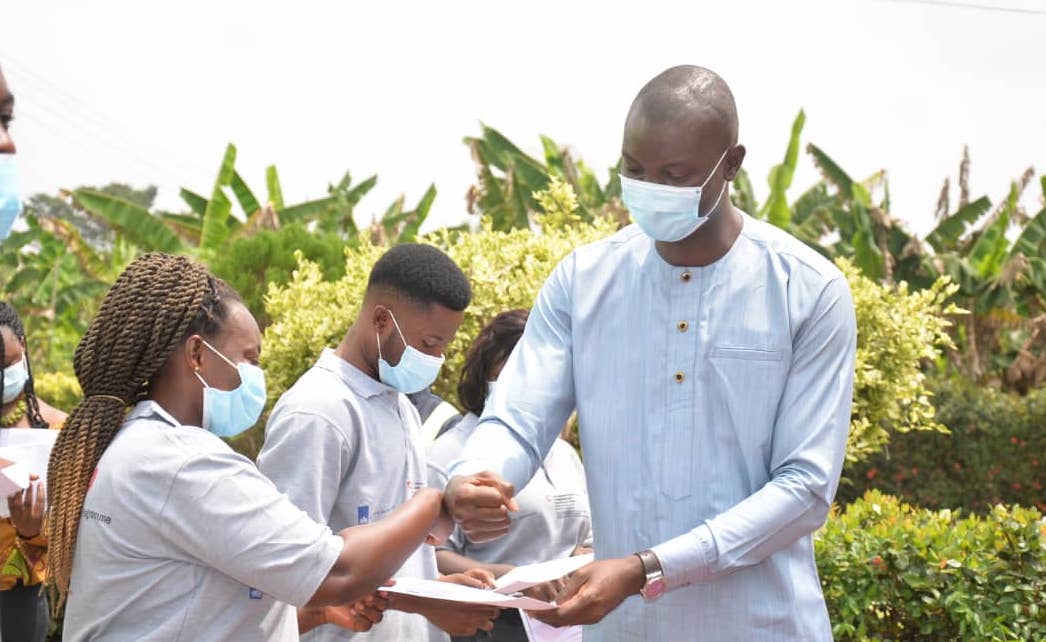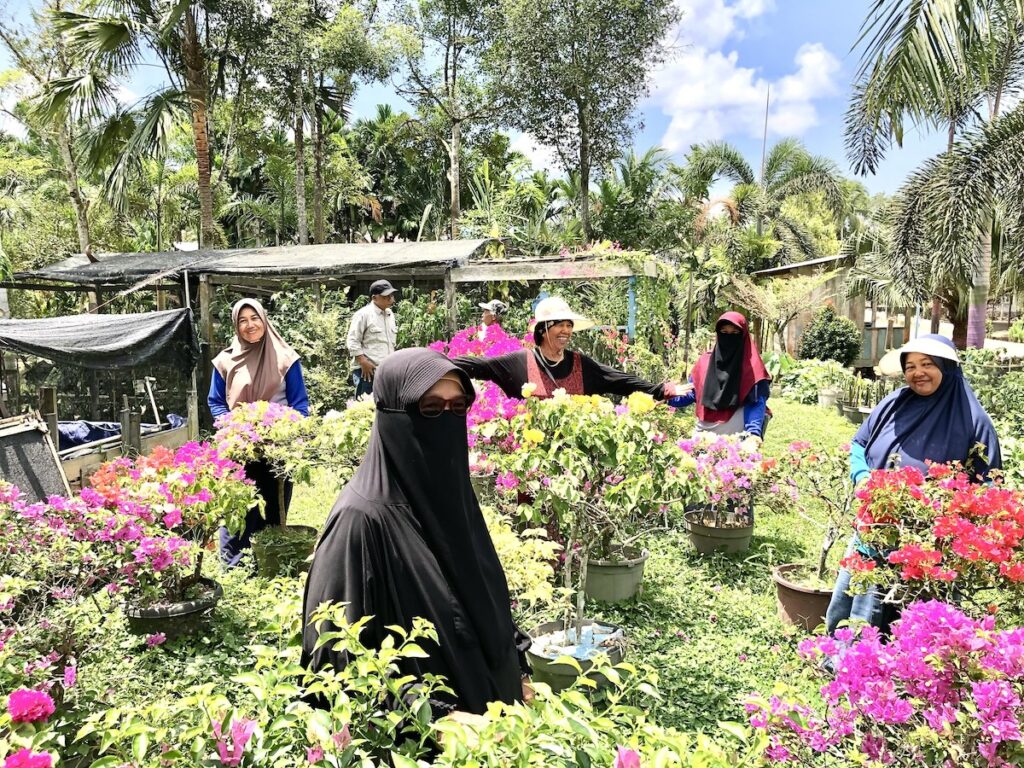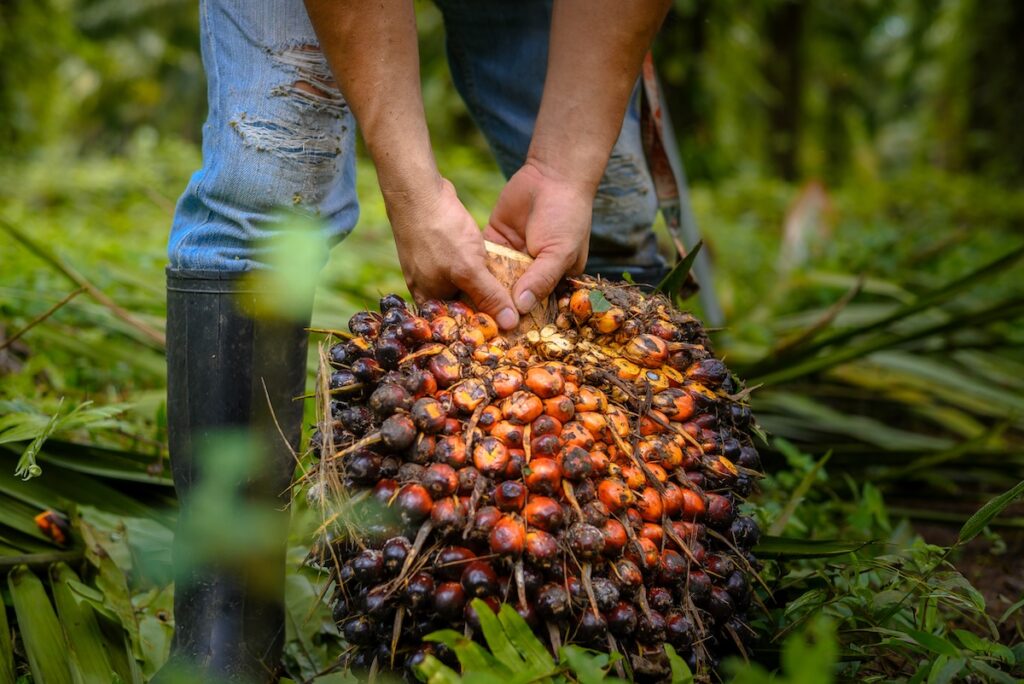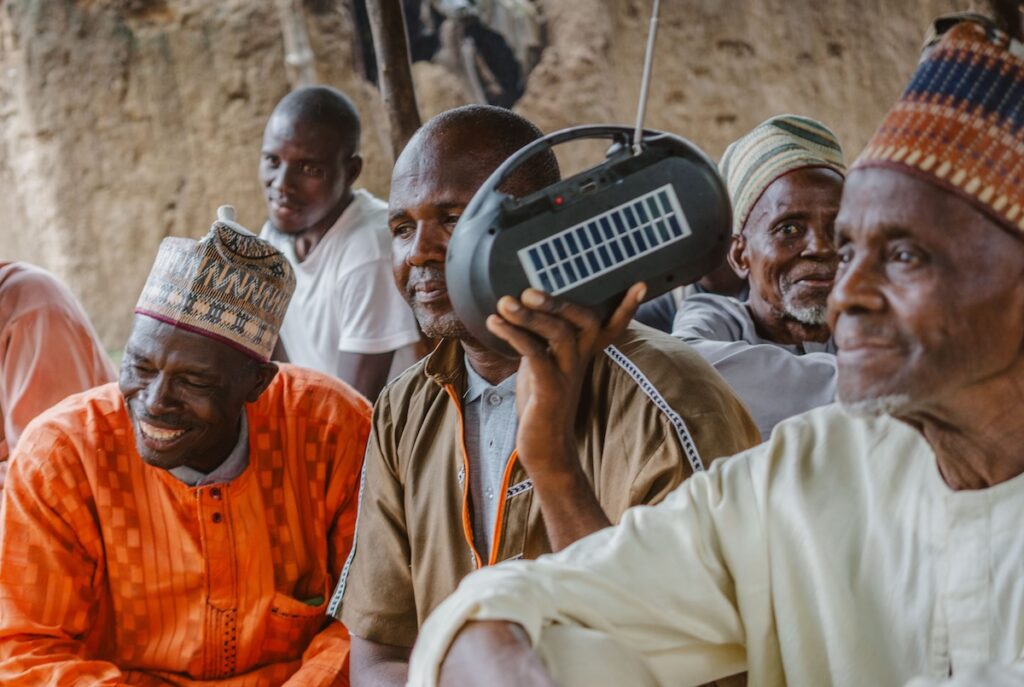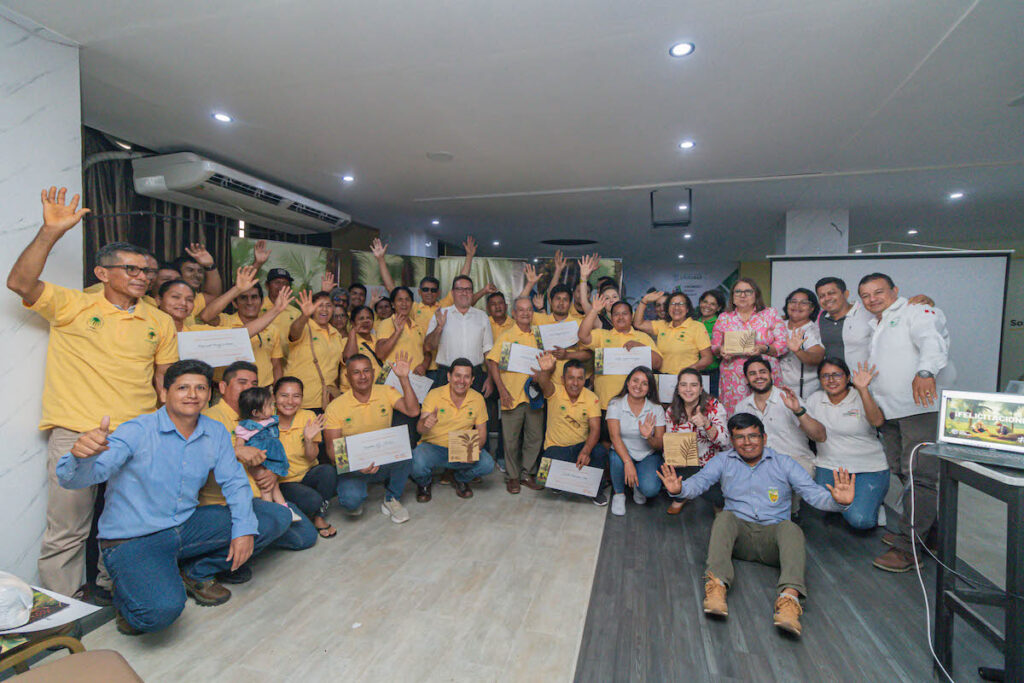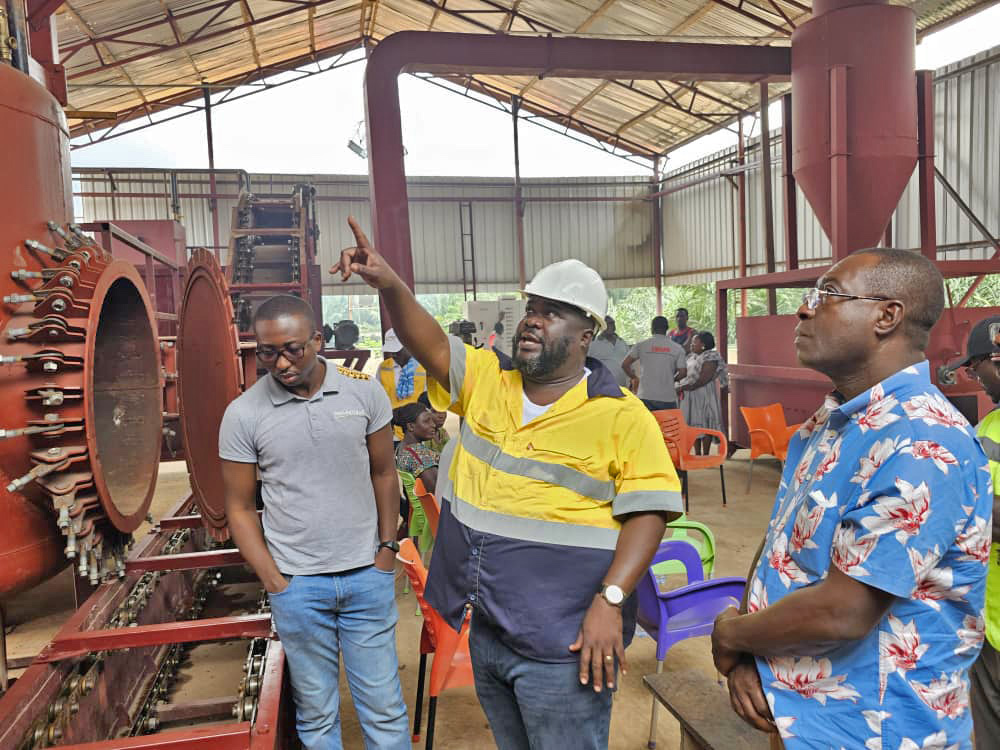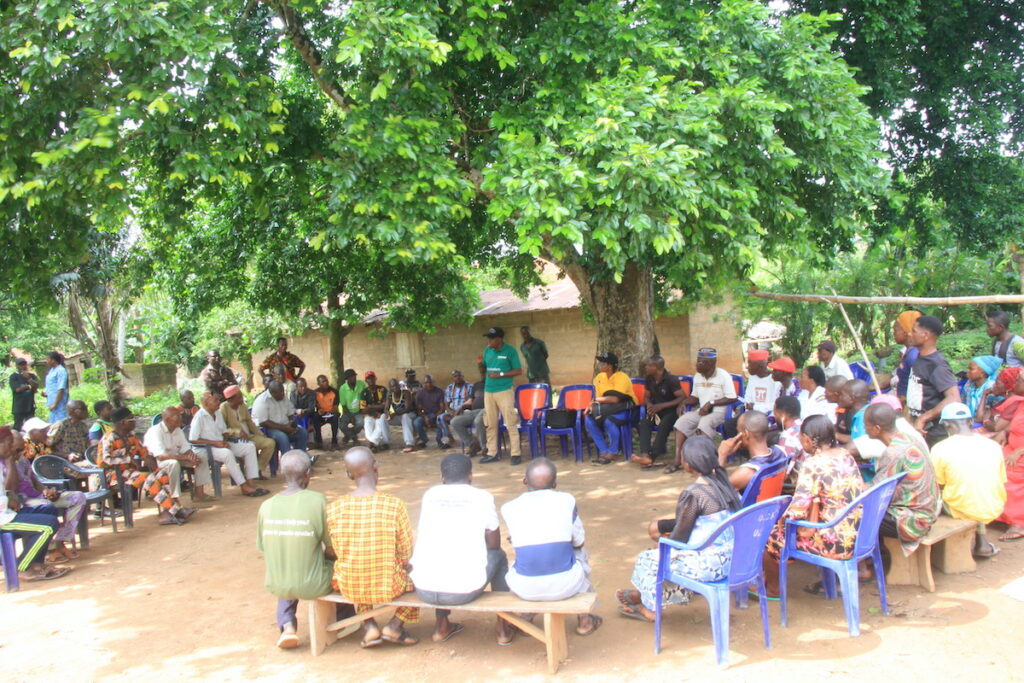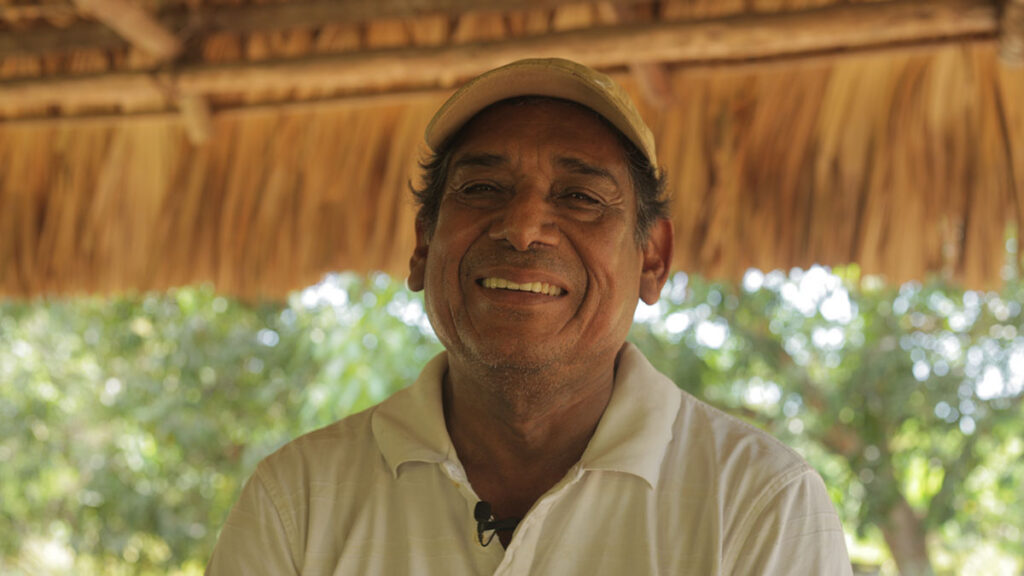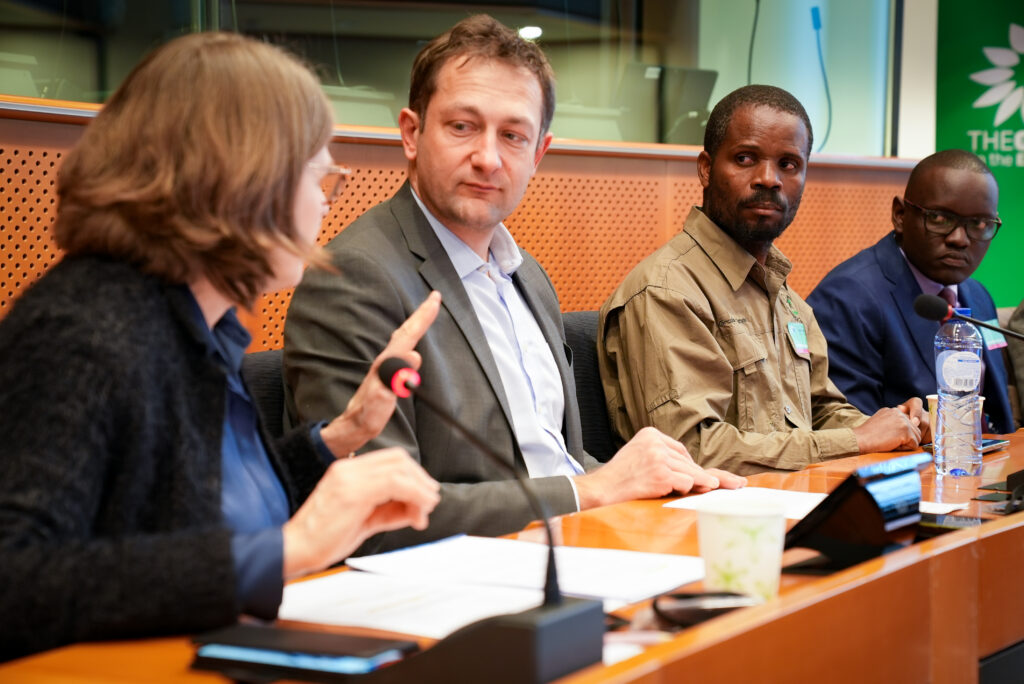The training, which was instituted by Solidaridad and its partners under the Agricultural Technical and Vocational Education Training (ATVET) initiative of the Government of Ghana, comprises instruction time and internship at an accredited organization.
Enrolled in five educational institutions accredited by the Council for Technical and Vocational Education Training (COTVET), the learners underwent a ten-week training offered in six modules — nursery establishment, land preparation and plantation establishment, harvesting, farm management, plant protection, chemical application, processing, quality assurance, and agribusiness management.
The competency-based training programme is under the implementation of the second phase of the Sustainable West Africa Palm Oil Programme (SWAPP II), and funded by the Embassy of the Kingdom of the Netherlands in Accra, the Swiss government through its State Secretariat for Economic Affairs (SECO), and the Deutsche Gesellschaft für Internationale Zusammenarbeit GmbH (GIZ).
Stakeholders remain focused on future partnerships
At a graduation ceremony in the University College of Agriculture and Environmental Studies, in the Eastern region of Ghana, where 101 learners successfully completed their training, the Dutch Ambassador, Ron Strikker, said the Dutch government was delighted that the idea to develop a competency-based programme in oil palm — conceived two years ago — had finally come to fruition.
He disclosed that the Dutch, together with the Swiss government, has been supporting the development of the oil palm sector in Ghana through Solidaridad’s Sustainable West Africa Palm Oil Programme because it recognises the value of vocational and technical education.
“For us, we see opportunities to continue supporting the government of Ghana in its development agenda,” Ron said.
The Swiss Ambassador to Ghana, Philpp Stalder said the Swiss embassy was looking forward to furthering areas of collaboration with Ghana to realise greater impact in competency-based training in the oil palm, cashew and other agriculture sub-sectors as it has done in the last three years.
Ghana remains a focal country for us, and developing skills for employment and entrepreneurship will continue to be on our agenda for the next four years
Philpp Stalder, The Swiss Ambassador to Ghana
The Head of Programme for Sustainable Economic Development at GIZ Ghana, Detlev Axel Jahn said the German Development Cooperation is using the Ghana Skills Development Initiative project to introduce competency-based training standards and collaborative training models in Ghana.
This, he explained, is expected to provide demand-driven training to job-seeking youth, apprentices and trade persons to build a confident and job-ready workforce that will be attractive and sought-after by industry as either employees or entrepreneurs.
Solidaridad’s commitment to empowering the youth
In remarks delivered on his behalf, the Regional Director of Solidaridad West Africa, Isaac Gyamfi said the competency-based training fits Solidaridad’s Theory of Change, which is that efficiency in supply chains cannot be achieved if the actors in the sector are not business-minded and lack the right skillset to capitalize on opportunities. He said it was for this reason that the right investment must be made to create agri-entrepreneurs to adopt technologies and create value-addition businesses that support farm workers to develop entrepreneurial skills aside from their technical know-how.
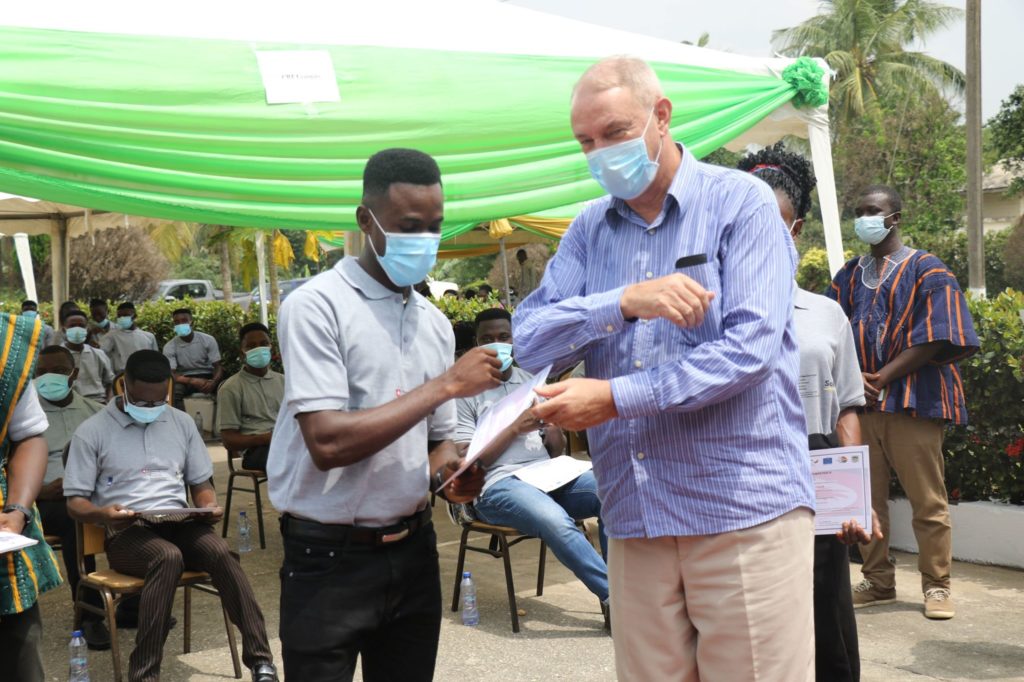
This, he said, was crucial for the sustainability of Ghana’s oil palm sector and to improve productivity to match leading producers like Malaysia and Indonesia.
“Solidaridad’s work does not end when the learners receive their certificates. This is because the endgame for us is to enable the learners to find jobs in the oil palm sector as workers or entrepreneurs and contribute to the sustainable growth of the sector,” Isaac added.
In 2019, Solidaridad, under the Sustainable West Africa Palm Oil Programme, supported the partner institutions with COTVET accreditation, as well as tools and equipment to run the training programme as part of its gender and youth inclusion agenda. In partnership with the Ghana Skills Development Initiative and COTVET, Solidaridad, in 2020, provided technical upskilling training to lecturers and tutors from the five partner educational institutions on the oil palm ATVET curriculum.
The programme seeks to reach 16,000 farmers, 2,000 women, and 1,000 youth in Ghana by the end of 2021. Interventions under the programme comprise access to finance and small and medium enterprise development, skills for employment, gender and youth inclusion in production and processing, environmental mitigation, and policy and institutional strengthening.

